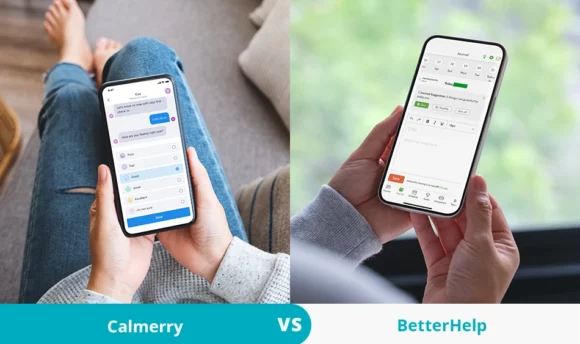Am I Unlovable? Why You Have This Feeling and What You Can Do About It
Believing that you are unlovable can be caused by a number of different things. If you feel this way, it is important to remember that it is not true. We’ve taken a look at some of the ways you can overcome these beliefs and feel better overall.

Self-doubt and low self-esteem are common worries for many people, and looking for acceptance and belonging is a natural part of being human. Feeling unlovable can be overwhelming, and some self-compassion may be necessary.
In this article, we’re going to examine where these thoughts come from and how to deal with them when they arise. Take a look to learn more now.
Am I Unlovable? The Truth Behind This Feeling
To feel unloveable essentially means you feel as though you’re not worthy of love. Feeling unloved or unlovable can stem from a number of core beliefs you hold about yourself, including low self-esteem.
While you may feel that you are unlovable, it is important to note that it does not make it true. Core beliefs you have play a part in how you think about yourself. A core belief is essentially an assumption you have made that you believe as fact. If you hold the core belief that you are unlovable or somehow unworthy of positive things, you will believe that it is true.
There are many ways you may have evolved to feel unlovable. These include not loving yourself enough, which can stem from low self-esteem, and seeking love in the wrong places, leading you to feel that you are fundamentally undeserving of love.
The good news is that no matter how much you feel you don’t deserve love, it is not true. Feeling unlovable comes from negative feelings you have about yourself, but you can overcome them. If you feel unloved, you’ll be pleased to know you can undergo a healing process and begin to feel differently about yourself in time.
Why Do I Feel Like I Don’t Deserve Love?
You may feel that you are a bad person or in some way not worthy of love because of the person you are. You may also believe you have made too many mistakes to be loved or that the choices you have made make you someone unworthy of love.
There are theories to suggest that feeling unlovable could stem from childhood experiences. You may have experienced trauma that has affected your mental health and could prevent you from feeling lovable. This painful experience could inform a core belief, making you feel unlovable.
There are also many links between believing you are unlovable and unloved and other mental health conditions. Conditions that could make you feel unlovable include depression and anxiety, borderline personality disorder, fear of intimacy, low self-esteem, and codependency.
Whatever the reason for these feelings, there are ways you can feel confident again and practice self-love so that you no longer feel unworthy.
What Causes the Feeling of Being Unlovable?
Below, we’ve taken a closer look at some of the reasons people feel unlovable. Take a look to understand more about how these situations can affect your mental well-being.
#1 Interpretation
We spoke earlier in the article about core beliefs and how they can have an impact on whether you feel loved. Part of the reason you may not feel accepted or loved could be your interpretation of your core beliefs about yourself.
This essentially means that if you have experienced unloving behavior in the past, this life experience could force you to interpret other behaviors as unloving, making you feel unlovable. There are some mental health conditions that can encourage this interpretation, including depression.
Selective interpretation is the process of seeing all acts through a prism that agrees with all you already believe. This implies that if someone does anything bad to you, you automatically perceive it as being because you already feel you are unlovable.
This can cause issues for you in relationships and with your self-belief. You can usually see a pattern of this behavior in past experiences when you begin to look for it and see how you may have misinterpreted actions, regarding them as negative and not positive ones.
The good news is that you can heal this form of thinking and reshape the lens through which you see things.
#2 Insecurities
New relationships can cause a lot of insecurities for a person who feels unlovable. These insecurities may make you believe that the person you are with doesn’t love you because you don’t see your own self-worth.
Past negative experiences and some attachment styles can enhance this thinking and stop you from experiencing true love in a relationship. Attachment issues, like insecure attachment styles, develop very early on in childhood.
Whether because of an attachment issue or other experiences, you may have insecurities that can cause you to feel unlovable. However, there are ways to move on from these feelings.
#3 Low self-esteem
Feeling unloved can come from feelings of low self-esteem. Having low self-esteem can cause you to feel like you’re not worthy of love. In relationships, you may feel you are not good-looking enough or that you don’t have as much to offer, but these self-limiting beliefs all come from how you feel about yourself.
Low self-esteem, like other emotions of this kind, can be caused by things that happened when you were a child or other relationships you have had. There are ways you can rebuild confidence and stop you from believing you are unlovable in time.
#4 Trauma
Trauma, whether experienced as a child or later in life, can make people feel unlovable. They may believe that they deserved what happened to them, and this can stop them from feeling accepted or loved by others.
If you have suffered trauma, a clinical psychologist could help you out and help you begin to feel loved once again.
#5 Depression
Depression can enhance the feeling of being unlovable as it causes what is known as cognitive distortions. These distortions cause you to believe that you are unlovable by interpreting experiences through this lens.
Depression is a serious mental health condition that you can get treatment for to help you to stop feeling unlovable.
What to Do When You Feel Unlovable
Thankfully, there are ways you can begin feeling loved once more. Take a look below to find ways to help you stop thinking like this.
#1 Try journaling
Journaling is a well-known way to support improved mental well-being. It has been thoroughly researched and is used by many people to help them feel better overall.
You could try writing down when you feel unloved and identify patterns and triggers that cause you to feel like this. By tracking your moods and exploring your feelings, you may be able to realize why you feel this way.
Getting your thoughts out may also help you put them into perspective and see them for what they are. It could help you to interpret them in a more positive way.
#2 Set boundaries
Boundaries are incredibly important for mental wellness. Setting boundaries essentially means prioritizing yourself, saying no to things you know will cause you mental harm, and ensuring that people don’t cross these limits.
If there are people in your life who inspire these emotions in you, you may decide to set boundaries with them so that you no longer feel triggered. You may also choose to stop attending certain events, give up drinking, or set more boundaries with work.
#3 Download an app
There are many mental wellness apps you can download to help you get a handle on this emotion. Such apps use mood tracking and journaling to help users build healthier habits for their mental wellness.
A Word From a Psychologist
If you feel unlovable, it could stem from many different experiences or psychological conditions. Whatever has caused it, it is important to note that just because you feel it doesn’t mean it is true.
There are many ways you can change the way you feel. Through self-care and healing, you can begin to feel more confident and build back your self-esteem. You could try journalling and mood tracking to take note of triggers and patterns, as well as using a mental wellness app.
You may also want to seek help from a therapist. There are many different kinds of therapy, including cognitive behavioral therapy, which can help you change the way you think and improve your overall mental wellness.
Seeking professional help for these thoughts can be the first step in healing. By speaking with a therapist, you will be able to find the root of these issues and find ways of overcoming them. Mental wellness is incredibly important, and seeking help can make a huge difference.
You can also enhance your general mental well-being by eating a healthy and balanced diet and getting regular exercise, like going for a daily walk.
Conclusion
Believing that you are unlovable can be caused by a number of different things, but none of these causes make the belief true. There are ways you can overcome these beliefs and learn to feel more confident in yourself.

















































 Select your language:
Select your language: 








